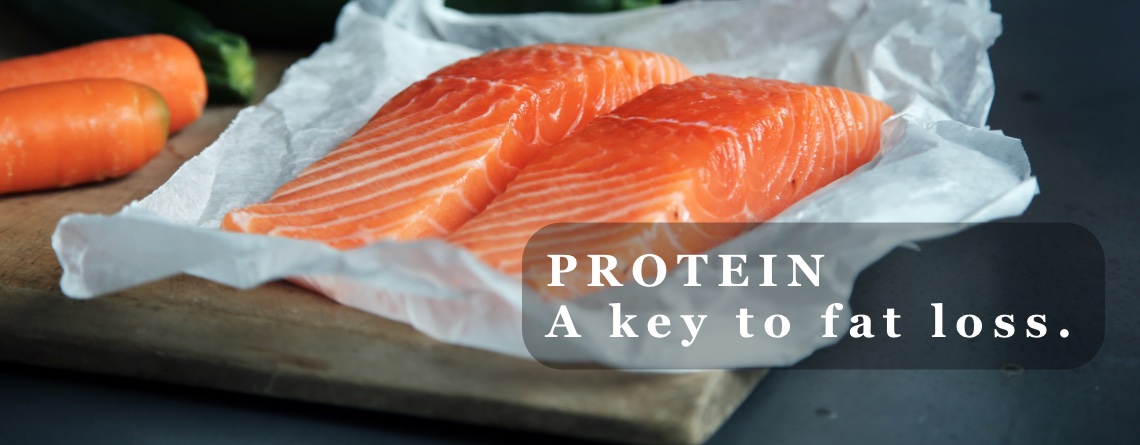
Protein serves many purposes in the body, but one of the most appealing of these is how it affects our body composition. It is one of the two essential macronutrients that we can not live without.
Protein and Fat Loss
Protein is the most thermogenic macronutrient of the three. This means that it takes more energy to process this nutrient. Thus increasing the amount of calories you burn on a daily basis without taking a single step!
The second benefit of eating protein for a weight loss goal is that it increases satiety – or decreases your level of hunger. No diet will ever work if you aren’t able to follow it, so this is a huge benefit for preventing possible slip-ups.
Protein is the Key To Muscle Gain
This isn’t groundbreaking by any means, so I’ll keep this short and sweet. Proteins are the building blocks of muscle tissue. Even with all the carbohydrates and fats in the world you can not rebuild tissue without these blocks. Learn more about the role of protein here!
Post-workout
Post-workout supplementation has been a staple in athlete regimes for years. The 20-30 minutes window has been touted as the most important time for nutrition. At this time your body is suffering from muscle breakdown (catabolism) and is need of nutrients to aid in repair (anabolism). It’s no secret that carbohydrates have been in the spotlight for their role in insulin (the most anabolic hormone in the body) stimulation, [2]however studies have shown little difference in muscle strength or growth with supplementation of protein vs protein+carbohydrates. It can be argued that the most important macro post-workout is protein. This study used 30g post-workout.
Protein and Kidney Problems
“There is no contraindication to high protein diets, in a healthy kidney population.” But they state that it should be avoided in the patients suffering from chronic kidney disease. [1]In the early days professional bodybuilding, it was believed that the more protein you ate then the more muscle you’d gain. We know this today as a falsehood due to what is termed, “law of diminishing returns.” It wouldn’t be uncommon for an athlete to be taking over 500g daily. And they wonder why they would have health implications. Matter has limitations.
How much?
The RDA is .36 times your bodyweight (pounds) in grams of protein.
Example: 100 pound man will eat 36 grams per day
Unfortunately, the RDA is a terrible goal for any nutrient as it is the lowest amount needed to survive. Athletes are recommended to hit at least a gram per pound of lean tissue (body weight without fat). This is also a great goal for anyone looking to lose weight. As a general rule, your demand for protein will go up as your calories go down.
I wouldn’t go over 1 gram per pound of lean tissue for a sedentary adult and 2 grams per pound of lean tissue for a dieting athlete or bodybuilder. The benefits will decrease exponentially. (Law of diminishing returns)
Interested in how exactly some of these processes work? Check out the link below!
References
[1]Friedman, A. N. (2004). High-protein diets: Potential effects on the kidney in renal health and disease. American Journal of Kidney Diseases, 44(6), 950-962. doi:10.1053/j.ajkd.2004.08.020
[2]Hulmi, J. J., Laakso, M., Mero, A. A., Häkkinen, K., Ahtiainen, J. P., & Peltonen, H. (2015). The effects of whey protein with or without carbohydrates on resistance training adaptations. Journal of the International Society of Sports Nutrition, 12(1). doi:10.1186/s12970-015-0109-4
[fbcomments url=”https://drtoddanderson.com/protein-amount/” width=”100%” count=”off” num=”3″ countmsg=”wonderful comments!”]
